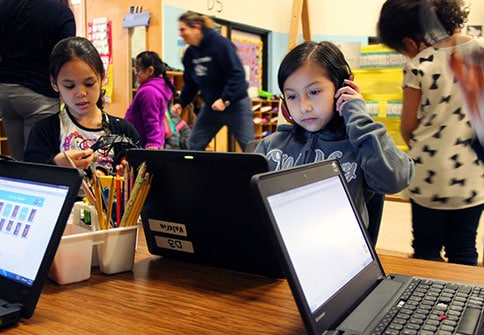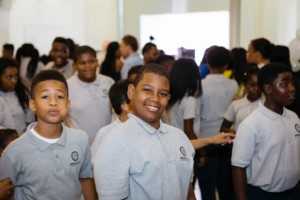The Path Forward: Broader Aims, Better Measures, Supported Educators

Over the last 90 days we’ve considered many of the big issues facing US K-12 in these 30 posts.
1. Relationships Matter. Learning is motivated and supported by relationships. Four key relationships include an advisor, mentors, cohorts, and project teams. Leadership, culture, and tools should reflect The Primacy of Relationships.
Poverty blocks learning in many ways. Sustained relationships are key to Helping Students Cope With The Trauma Associated With Poverty.
Advisory Systems Are Key to Personalizing The Secondary Experience. Another vehicle for positive relationships and experiences is High School Internships.
2. Great schools show the way. Cool schools like Houston’s A+ Unlimited Potential combine a flex blend with community partnerships.
Brooklyn Lab is a next gen model and platform. Metro in Columbus and Quest in Houston are good examples of blended schools where students have the opportunity to earn college credit.
Two Next Gen Career Centers. Carl Wunsche High School in Texas and Blue Valley Center for Advanced Professional Studies in Kansas–are next gen schools redefining the career center.
More traditional but compelling, Great Hearts and BASIS provide challenging work that helps students learn to use their minds well.
3. The shift to personalized learning is complex. Many Districts Are Racing to Personalize Learning but it’s still really challenging to design next generation learning environments supported by an integrated technology stack. We identified 10 strategies for Helping CAOs Make The Shift From Managed Instruction To Personalized Learning.
An iterative approach and Collaborative Culture Fuels Districts Like Meriden’s Blended Success.
Some regions are benefiting from of a smart partner. Highlander Institute is Blending Rhode Island.
4. Leadership matters. But Leadership Development in US Schools is The Opposite of Good. With Karen Cator’s help we’re working on a blueprint for next gen preparation.
EdLeaders need to be conversation leaders and Agreement Crafters. To move past a focus on test prep, EdLeaders lead community conversations about What Should High School Graduates Know And Be Able To Do? Smart EdLeaders leverage Leverage Trends To Make An Impact.
We outlined 7 Things EdLeaders Should Do and The Leadership it Takes to Create Smart Cities. Transforming a system takes time; Innovation and Improvement Takes a Sustained Push.
5. Toward student-centered. Two global trends were evident at the Global Education Futures Forum, Broader Aims and Students at the Center. The hunch that encouraging student agency will produce better learning outcomes is central to Most Likely to Succeed: A Film About What School Could Be.
How to embrace student-centered learning and measurement? This tension was explored in EdReform and Innovation: The End of The Big Test is in Sight.
A related paradox is the Defense of Liberal Arts AND Employability.
6. Better use of formative. The shift to blended student-centered learning (and the end of those week long end of year tests) will take Better Models and Better Tests; it will require new ways to combine and use formative feedback.
It’s harder than it should be to create an effective sequence of learning experiences in K-12. Districts like Charlotte-Mecklenburg Schools are outlining What Next-Gen Learning Platforms Should Do. We’ve been running The Learning Platform Series, product reviews of platforms headed in the right direction.
Secondary and postsecondary students should have cost free access to a private portable profile–It’s Time For Students To Own The Student Record.
7. New teacher roles. While not as fast as some of us would like, the toolset has improved a lot in the last few years. We spotted 50 Ways EdTech Benefits Teachers and Students.
New tools make it easier to extend the impact of great teachers and improve working conditions and learning opportunities for all educators. We explored New Staffing Structures Piloted in Nashville Schools.




0 Comments
Leave a Comment
Your email address will not be published. All fields are required.